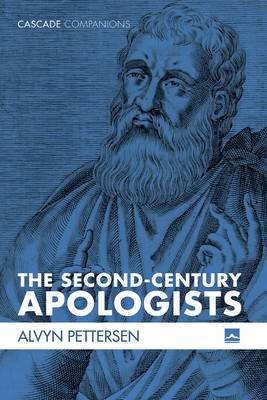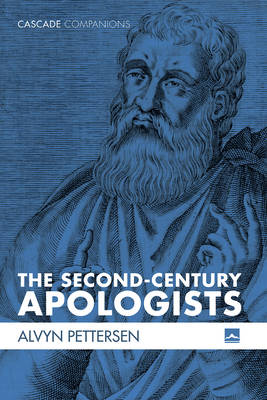
Je cadeautjes zeker op tijd in huis hebben voor de feestdagen? Kom langs in onze winkels en vind het perfecte geschenk!
- Afhalen na 1 uur in een winkel met voorraad
- Gratis thuislevering in België vanaf € 30
- Ruim aanbod met 7 miljoen producten
Je cadeautjes zeker op tijd in huis hebben voor de feestdagen? Kom langs in onze winkels en vind het perfecte geschenk!
- Afhalen na 1 uur in een winkel met voorraad
- Gratis thuislevering in België vanaf € 30
- Ruim aanbod met 7 miljoen producten
Zoeken
€ 65,45
+ 130 punten
Uitvoering
Omschrijving
"They bring three charges against us: atheism, Thyestean banquets, and Oedipean unions." So a late second-century Christian Apologist wrote with reference to his critics. Against these and other charges the Apologists rallied. Not so, they maintained. It was not the Christians but their critics who were the atheists and the Christians were the true theists. They were atheists only insofar as they denied the fabricated gods of the cults and the immoral deities of theaters. That, they explained, was why Christians absented themselves, whatever the cost, from the imperial cult, theaters, and amphitheaters. They were not cannibals, as Thyestes was when he ate the flesh of his children. To suggest otherwise was to misunderstand Christians consuming Christ's flesh and blood at the Eucharist. Nor were they imitators of Oedipus, who entered into sexual relations with Jocasta, his Queen and, though he knew it not, also his mother. Christians did exchange the kiss of peace. They did love one another. They were not, however, incestuous. Any promiscuous love on their part extended only to a very practical love of every needy soul. This book explores these arguments, especially noting the Apologists' commitment to God's oneness, to Christians not worshipping anything made, and to humans properly caring for fellow creatures.
Specificaties
Betrokkenen
- Auteur(s):
- Uitgeverij:
Inhoud
- Aantal bladzijden:
- 200
- Taal:
- Engels
- Reeks:
Eigenschappen
- Productcode (EAN):
- 9781725265264
- Verschijningsdatum:
- 31/08/2020
- Uitvoering:
- Hardcover
- Formaat:
- Genaaid
- Afmetingen:
- 127 mm x 203 mm
- Gewicht:
- 326 g

Alleen bij Standaard Boekhandel
+ 130 punten op je klantenkaart van Standaard Boekhandel
Beoordelingen
We publiceren alleen reviews die voldoen aan de voorwaarden voor reviews. Bekijk onze voorwaarden voor reviews.









